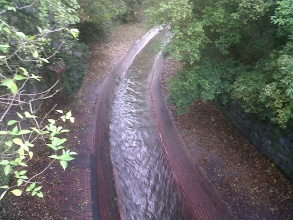Case study:Philips Park: Difference between revisions
Jump to navigation
Jump to search
No edit summary |
No edit summary |
||
| Line 42: | Line 42: | ||
{{Site}} | {{Site}} | ||
{{Project background}} | {{Project background}} | ||
{{Motivations}} | {{Motivations | ||
|Hydromorphological quality elements=Continuity of sediment transport, | |||
}} | |||
{{Measures}} | {{Measures}} | ||
{{Hydromorphological quality elements header}} | {{Hydromorphological quality elements header}} | ||
Revision as of 14:49, 13 May 2014
Location: 53° 29' 22.57" N, 2° 11' 39.50" W
Left click to look around in the map, and use the wheel of your mouse to zoom in and out.
Project overview
| Status | Planned |
|---|---|
| Project web site | |
| Themes | Flood risk management, Habitat and biodiversity, Hydromorphology, Social benefits, Urban |
| Country | England |
| Main contact forename | Oliver |
| Main contact surname | Southgate |
| Main contact user ID | |
| Contact organisation | |
| Contact organisation web site | |
| Partner organisations | |
| Parent multi-site project | |
| This is a parent project encompassing the following projects |
No |
Project summary
Edit project overview to modify the project summary.
One of the most heavily modified and constrained sections of river corridor in the UK. Failing for WFD (Fish, Hydromorphology and Invertebrates)
- In it’s current condition presents a flood risk downstream
- Has no natural connectivity with Clayton Vale and Philips Parks
- No formal access for public
- No recreational activities undertaken
Feasibility
- Completed flood risk assessment
- Completed a full contaminated land assessment
- Engaged with the community via the River Restoration in Schools project
- Surrounding Ecology and Biodiversity surveys complete
- Community and partner engagement
- Partnerships secured
- Full designs complete
- Monitoring programme established
Monitoring surveys and results
This case study hasn’t got any Monitoring survey and results, you can add some by editing the project overview.
Lessons learnt
This case study hasn’t got any lessons learnt, you can add some by editing the project overview.
Image gallery
|
Catchment and subcatchmentSelect a catchment/subcatchment
Catchment
Subcatchment
Other case studies in this subcatchment: Clayton Vale, River Irwell Restoration Project
Site
Project background
Cost for project phases
Reasons for river restoration
Measures
MonitoringHydromorphological quality elements
Biological quality elements
Physico-chemical quality elements
Any other monitoring, e.g. social, economic
Monitoring documents
Additional documents and videos
Additional links and references
Supplementary InformationEdit Supplementary Information
| ||||||||||||||||||||||||||||||||||||||||||||||||||||||||||||||||||||||||||||||||||||||||||||||||||||||||||||||||||||||||||||||||||||||||||||||||||||||||||||||||||||||||||||||||||||||||||||||||||||||||

